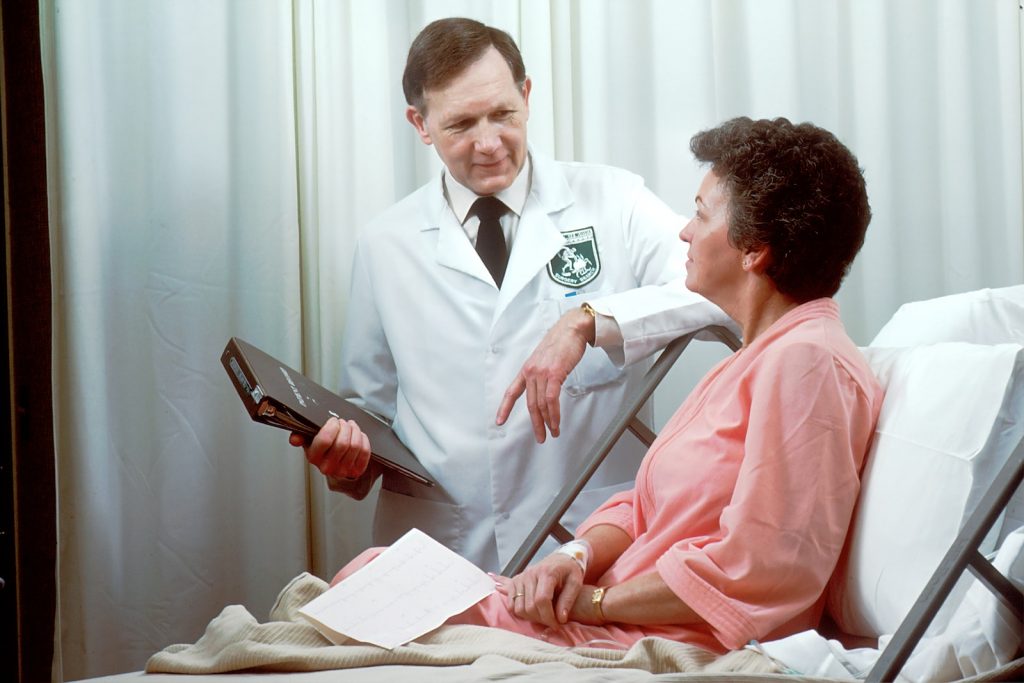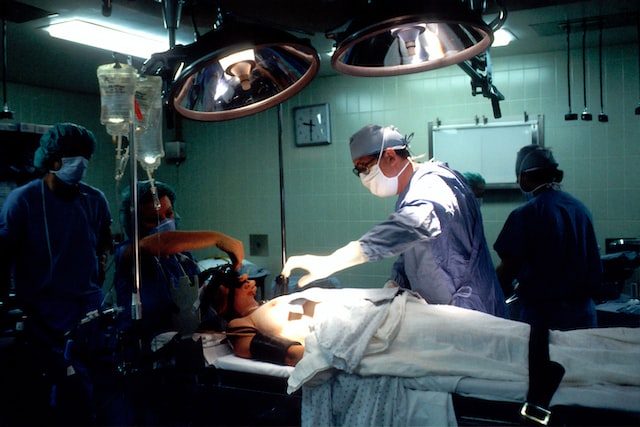The healthcare industry is continually striving to improve patient experience. As such, IT services can play a vital role in helping providers enhance the experiences of their patients. By leveraging technology, healthcare professionals are able to create an environment that is tailored to individual needs and provide access to quality care in faster and more efficient ways. This article will explore how IT services are aiding healthcare providers in delivering improved patient experiences.
Definition Of IT Services
Information Technology (IT) Services are the combination of hardware, software and networking components used to store, retrieve, transmit and manipulate data in order to support various business processes. They help organizations manage their day-to-day operations more efficiently and securely by providing access to critical information from any location at any time. In healthcare, IT services provide a platform for providers to collect patient data, communicate with other health systems, analyze trends and make informed decisions about care delivery.
The use of IT services in healthcare has grown significantly over the past decade due to advancements in technology such as cloud computing, artificial intelligence (AI), Internet of Things (IoT) devices and machine learning algorithms. These technologies have enabled providers to increase efficiency while improving quality of care. There are several types of IT services available for healthcare settings that include electronic health record (EHR) systems, telehealth services, analytics tools and enterprise resource planning (ERP) solutions.
Healthcare IT services also encompass specialized technologies designed specifically for medical facilities or practices such as clinical decision support systems (CDSSs). CDSSs are computerized programs that can be used to help clinicians quickly review patients’ histories and recommend treatment options based on evidence-based guidelines. Additionally, there is an increasing demand for remote monitoring solutions which enable physicians to monitor vital signs remotely through connected devices such as wearables or smartphones.
Health IT services streamline many common tasks associated with patient care including scheduling appointments, filling prescriptions, ordering tests and collecting payments electronically. This helps reduce costs by eliminating manual paperwork processing and ensures accuracy when dealing with sensitive patient information like personal health records (PHRs). Healthcare providers benefit from improved communication between staff members which enables them to better coordinate care across multiple departments within the hospital or clinic. By leveraging these tools they are able to enhance the overall patient experience while ensuring regulatory compliance standards are met.
Benefits For Healthcare Providers

Healthcare providers can benefit substantially from IT services in a variety of ways. From improved patient care to enhanced data security, healthcare organizations are able to use these services to their advantage.
First, its services provide better patient care and experience. By utilizing the latest technology, healthcare providers are able to access medical records quickly and accurately. This enables them to offer more personalized care for patients as well as reduce wait times for appointments and procedures. Additionally, electronic health record systems allow doctors and nurses to share information easily with other members of the team, providing faster diagnosis and treatment options for each individual case.
Second, IT services help improve data security within healthcare organizations. With increased levels of cyber threats in today’s world, it is essential that a provider be able to protect their sensitive patient information at all times. Utilizing IT solutions such as encryption software or firewalls can ensure that any confidential information remains secure while still being accessible when needed by authorized personnel. Furthermore, they can also be used to monitor activity on a network system so that any suspicious behavior can be identified quickly before an issue arises.
Thirdly, IT services enable physicians and staff members to have up-to-date knowledge about advancements in medicine and treatments available for different conditions. Through online research platforms or webinars hosted by experts in various fields of medicine, clinicians can stay informed on new techniques or medications which may benefit their patients’ recovery process significantly. As a result, this allows them to provide higher quality care with greater efficiency due to the easy accessibility of current resources available through these technologies.
Finally, IT solutions assist providers by offering tools designed specifically for managing administrative tasks such as billing processes or scheduling appointments more efficiently than ever before possible. Automating mundane duties not only saves time but also money since there would no longer be need for manual labor related costs associated with those same tasks if done manually . Overall , implementing effective IT strategies helps enhance overall operations within healthcare environments which leads directly towards improved patient experiences across the board .
Impact On Patient Care Quality

Healthcare IT services have had a profound effect on patient care quality. By streamlining processes, they enable healthcare providers to reduce costs while increasing efficiency and providing superior patient experiences. Through the utilization of advanced technologies such as automated appointment scheduling, data management systems, and telemedicine platforms, healthcare providers are able to improve the overall quality of their patient care delivery models. In addition, this technology has enabled them to better manage resources in order to provide more timely diagnoses and treatments for patients.
As a result of these advancements, healthcare providers have seen an increase in the quality of their patient experience due to improved communication between staff and patients, increased engagement with healthcare professionals during visits, and greater access to information regarding diagnosis and treatment options. This ultimately leads to higher levels of satisfaction among patients who visit healthcare facilities. Additionally, automating certain tasks helps alleviate stress from clinical personnel by freeing up time that can be used elsewhere within the organization or dedicated towards other activities related to delivering high-quality care.
The implementation of healthcare IT services also provides opportunities for improved accuracy when it comes to administering medications, diagnosing issues quicker than before, tracking progress over time for different conditions or diseases more accurately, reducing wait times for appointments and test results significantly, and monitoring vital signs remotely. All these features are essential components that contribute towards enhancing the quality of care provided by health systems across all areas – from primary care settings like clinics and hospitals to long-term acute care facilities like nursing homes.
In short, there is no doubt that health IT solutions have helped improve both patient experience quality as well as provider efficiency – leading not only to increased patient satisfaction but also cost savings which benefit everyone involved in providing medical attention at any level. As such, investing in modernizing technology should remain one of top priorities when it comes to improving outcomes within the healthcare sector.
Challenges And Solutions
The healthcare industry is facing a number of challenges when it comes to providing quality patient care. IT services are an essential part of helping healthcare providers mitigate risks and improve the patient experience. However, there can be issues with implementing and managing these systems.
One challenge is that many healthcare organizations lack a comprehensive understanding of their existing IT infrastructure or how to optimize it for better performance. Healthcare providers need access to expertise in order to identify areas where they are falling short and develop solutions that meet the needs of patients. Additionally, integrating new technologies into existing systems requires careful planning and execution. Without proper guidance and support, this process can be difficult and time-consuming.
Another issue is ensuring data security while still allowing unrestricted access to digital tools necessary for efficient patient care delivery. Equipping staff with features such as secure authentication processes can help protect sensitive information from unauthorized users while letting them utilize technology without disruption. However, balancing user convenience with security requirements remains one of the biggest challenges that must be met by healthcare providers looking to improve the patient experience through improved IT services.
Lastly, staying up-to-date on regulatory changes related to health IT compliance can present problems for those who do not have dedicated resources available for monitoring updates. To ensure quality improvement initiatives remain compliant, healthcare facilities must stay informed about current laws regarding data privacy, electronic health records (EHRs), etc., which add another layer of complexity for teams striving for optimal efficiency in delivering high levels of patient care.
Healthcare providers face a variety of obstacles when seeking to provide superior patient experiences through enhanced IT services; however, innovative solutions exist to address these challenges. Implementing strategies designed specifically around the unique needs of each organization can reduce risk and create positive outcomes in terms of both quality care improvements and patient satisfaction ratings alike.
Conclusion
The integration of IT services in the healthcare sector has had a positive impact on patient experience. Healthcare providers have seen numerous advantages as a result of this shift, including improved care quality and efficiency. As healthcare organizations strive to provide high-quality care while meeting ever-evolving needs of their patients, taking advantage of available IT solutions can serve them well.
For patients, access to electronic health records has allowed for greater transparency and understanding when it comes to their medical information. This increased visibility allows individuals to become fully informed regarding their own health and makes it easier to manage chronic conditions or maintain preventive measures. Additionally, automated processes such as appointment scheduling can save time and offer convenience that was not always possible before.
Despite these benefits, there are certain challenges related to the implementation of IT services. Security concerns remain an ongoing issue due to the sensitive nature of data handled by healthcare organizations. Organizations must also invest in training staff members so they understand how best to use new technology solutions in order to maximize both efficiency and effectiveness. By addressing these issues proactively, healthcare providers will be able to make meaningful strides towards providing higher levels of service for their patients.


















